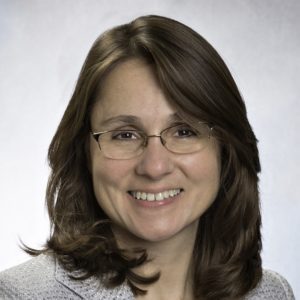Christine M. Albert, MD, MPH
Professor of Medicine, Harvard Medical School
Physician, Brigham and Women’s Hospital
calbert@bwh.harvard.edu

Dr. Albert is the Director of the Center for Arrhythmia Prevention at Brigham and Women’s Hospital and Professor of Medicine at Harvard Medical School. Dr. Albert received her MD from Harvard Medical School and MPH from the Harvard School of Public Health. She completed her Internal Medicine, Cardiology, and Cardiac Electrophysiology training at the Massachusetts General Hospital in Boston. She currently holds joint appointments as a clinical cardiac electrophysiologist and epidemiologist within the Divisions of Cardiovascular and Preventive Medicine at Brigham and Women’s Hospital. Dr. Albert is currently the Principal Investigator on two NIH-sponsored R01s, and her research focuses on epidemiology, risk stratification, and prevention of sudden cardiac death and atrial fibrillation in large prospective cohort designs and in multi-center clinical studies, most notably seminal contributions regarding the contribution of diet, lifestyle, and genetics to the burden of heart rhythm disorders. Dr. Albert serves on the editorial boards of Heart Rhythm and is the President-Elect of the Heart Rhythm Society. Effective September 1, 2019, Dr. Albert has joined Cedars-Sinai Medical Center as the founding Chair of the Department of Cardiology and the Lee and Harold Kapelovitz Endowed Chair in Research Cardiology.
BA: Boston University
MD: Harvard Medical School
MPH: Harvard School of Public Health